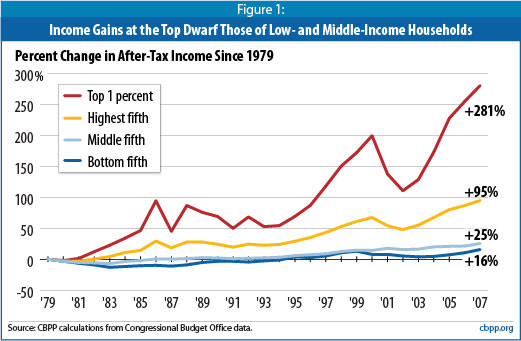Subject as he is to the ready onset of Anglophilia, the ol' Bloviator should have known better than to watch "The King's Speech" just a few days before the high pageantry and ceremony of the never-to-be-forgotten Willy-Kate nuptials. Of the former, he will say that although he is surely no movie critic, by golly, he knows what he likes, and this film certainly belongs in that category. It features great performances by Colin Firth, Geoffrey Rush, and Helena Bonham Carter, but the story itself is also terrific in its own right and wonderfully evocative of the Brits at their chipper, stiff-upper-lipper best in confronting adversity of the direst and most painful sort. This account of Prince Willy's great-grandpa George VI's, struggle to overcome his horrendous speech impediment in the face of his Hitler-loving brother's decision to abdicate his throne rather than deny himself the round-the-clock charms of a divorced floozy from Baltimore could well be an allegory for his nation's coming struggle to survive the relentless pounding of Nazi bombs and rockets. In the end, both the King's and Britain's ordeal showed each in what Churchill rightly called "their finest hour."
This keep-on-keeping-on approach to life even comes through in the storied ancestry of none other than your humble correspondent himself. One Thomas Cobbe was the "bailiff" or estates manager for 6,000 acres or so of land controlled by none other than Thomas Cranmer, who served as the Archbishop of Canterbury during the wild and crazy-- not to mention tense and tricky--years of the sixteenth century when that horny ol' bastard Henry VIII broke with the Roman Catholic Church and founded the Church of England after the Vatican refused to grant an annulment of his marriage to Catherine of Aragon on the grounds that she had failed to give him a male heir.
The OB was shown first-hand evidence of the fallout from this parting of the religious and marital ways when the current owner of Tom Cobbe's old digs was kind enough to invite him in for a look-see at the huge oak mantles on the fireplaces, both of which gave evidence of the urgent gouging (ca. 1530) that had been necessary to the speedy and altogether prudent removal of the conjoined symbols of England and Aragon that had once adorned them. This didn't make old Tom's position completely secure by any means, however, especially when Elizabeth Barton, a scullery maid in this very house, began sounding off about powerful and sometimes terribly frightening revelations supposedly bestowed on her by none other than Jehovah God his own self.
Unfortunately, the Big Guy happened to let it slip that he was really pissed at Henry's recent behavior, and naturally she felt compelled to blab about that to anybody who was fool enough to listen. Alas, not only did the upshot of the so-called Holy Maid of Kent's losing her head in this fashion turn out to be losing it in the other fashion too (1534), but several of her patrons and followers suddenly showed up shorter--and deader--as well. Not so, however, with great-great........... Grandpa Tom, who had already checked out on his own several years earlier with his head firmly affixed, but not before shipping loose-lipped Lizzie Barton off to a nunnery where she resided until Henry's goon squad finally caught up with her. Sadly, ol' Grandpa Tom and his wife Grandma Joan did not appear to part on the best of terms, for although he was generous in his bequests to local churches, he left her but a pittance and warned in his will that "if my wife is not contented with this portion and vex the executor, she shall lose and not have anything." (Ms. OB, please take note.) At any rate, a little more than a century later, Tom and Joan's great-great-grandson Ambrose would shove off for Virginia, and as they say, the rest is history.
The OB feels that this same muddle-on-no-matter-what mindset that saw Grandpa Tom through his travail was on display everywhere in this morning's ceremonies in which an extremely attractive, make that "smokin' hot," couple who have been going at it like hamsters in a Viagra experiment for the last decade were magically and quite regally re-virginized and imbued with all the innocence and hope that is supposed to accompany new beginnings. Within all that, there was a royal family, about as fractured and dysfunctional as they come, all of them haunted by the spectral presence of the princess/"mum" who wasn't there, celebrating a very personal event in front of roughly two billion of their closest friends. By rising to the occasion one more time, they were hopefully offering their subjects a rejuvenating "up" after what has been for them and their country fully a generation of "downs," marked not only by tragedy and scandal among the royals themselves but by Britain's faltering economic fortunes, declining prestige, and a rapidly fading national sense of identity and purpose. With Queen Elizabeth's eighty-seventh birthday now come and gone and, bless his heart, the not-so-Bonnie Prince Charlie lurking awkwardly in the wings, British people have probably been wondering what it will be like to be saying "God save (us from) our king," but now there is at least the prospect that if they can somehow muck through his monarchy, happier days await with Willy and Kate.
There is often a tone of disparagement in the observation that the British do ceremony really well. (The same could be said of Hitler, after all.) Yet without letting them skate in the least for the manifold sins of their imperial past, I'd say that investing such meaning in the ceremony that we just witnessed helps to explain why they do a pretty damn good job with reality as well. Perhaps rather than look on their behavior with such puzzlement, we should ask ourselves why so many of us were up well before daycrack today taking it all in, with some even donning garb appropriate to the spirit of the occasion, if not the time.
We love to laugh at 'em, (though not nearly so much as they seem to love laughing at themselves) but regardless of how hopelessly archaic and cumbersome their dogged insistence on ritual pomp and fuss may seem at times, it marks them nonetheless as a people aware of being part of something older, bigger and ultimately more important than themselves or their concerns of the moment. It used to be that a presidential inaugural, which once signaled at least a brief suspension of partisanship and a common renewal of faith in the sanctity and power of our governing institutions, conveyed a similar sense, but the OB finds such a feeling increasingly hard to come by over here these days. The origins of our population are far more diverse than they were even fifty years ago, but our sense of kinship with Great Britain was always less about bloodlines than the feeling of common values and purpose between our nations and our people. While we all should probably be thankful that royal weddings don't really happen that often, this one seems to have come along at a very good time for our friends across the pond, and if it encouraged a few Americans to search out their "inner Brit," then it's hard to see much harm in that either.

